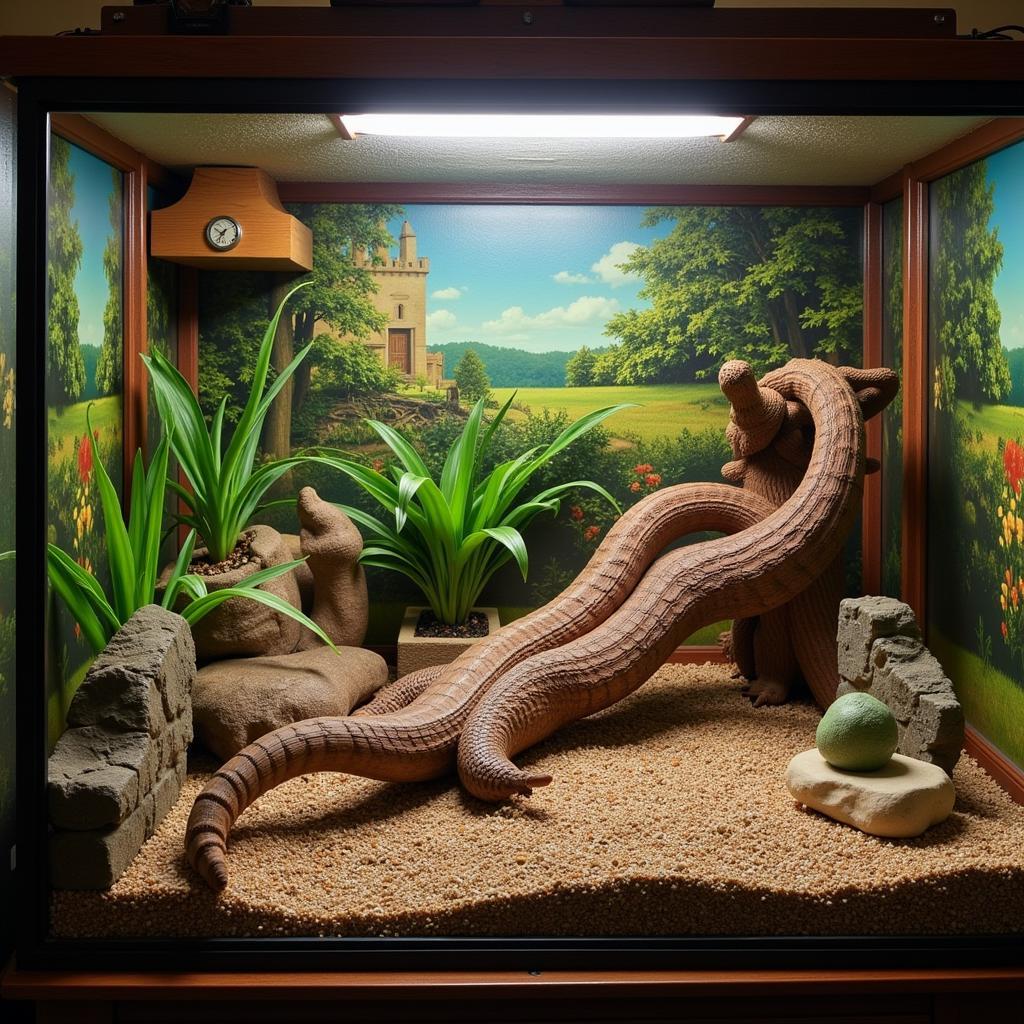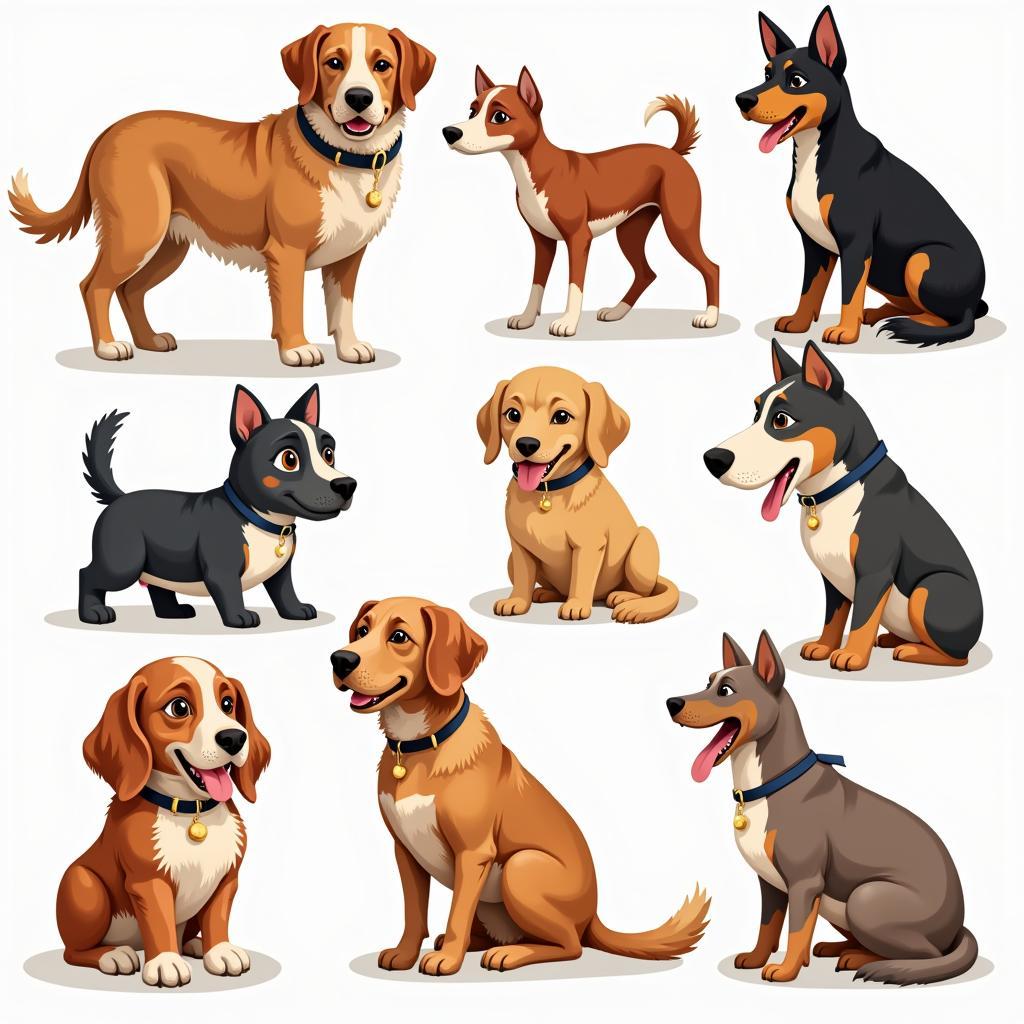Devious Desires Pets: Unveiling the Myth
November 14, 2024Devious Desires Pets. This phrase evokes a sense of mystery and intrigue, often conjuring images of exotic or unusual animals kept for nefarious purposes. However, the reality is often far less dramatic. This article will explore the various interpretations of “devious desires pets,” examining the motivations behind owning certain types of pets and debunking common misconceptions surrounding this often misunderstood topic.
Exploring the Meaning of “Devious Desires Pets”
What exactly constitutes a “devious desires pet”? The term itself is subjective and open to interpretation. Some might associate it with owning venomous snakes or large predatory cats, driven by a desire for power or control. Others may view it as keeping exotic animals solely for their rarity and status symbol appeal. Still others might consider certain breeding practices, focusing on extreme physical characteristics, as fulfilling “devious desires.” The truth is, the term lacks a concrete definition and is often used to project negative assumptions onto pet owners.
The Psychology Behind Pet Ownership
Human motivations for owning pets are complex and varied. Companionship, emotional support, and a connection to nature are common drivers. However, other factors can also play a role, such as a desire for social status, a fascination with the unusual, or even a need to fill an emotional void. While some of these motivations might be perceived as “devious” by some, it’s important to avoid generalizations and understand the individual context.
 Psychology of Pet Ownership: Exploring the Human-Animal Bond
Psychology of Pet Ownership: Exploring the Human-Animal Bond
Exotic Pets: Navigating Ethical Concerns
The ownership of exotic animals often comes under scrutiny, raising valid concerns about animal welfare, conservation, and public safety. While some individuals may indeed acquire exotic pets for selfish or “devious” reasons, many responsible exotic pet owners prioritize the well-being of their animals and actively contribute to conservation efforts. The key lies in responsible ownership, including thorough research, proper enclosure and care, and a commitment to ethical sourcing.
Responsible Exotic Pet Ownership: A Balancing Act
Responsible exotic pet ownership requires significant dedication and resources. It’s essential to understand the specific needs of the species, including their dietary requirements, environmental enrichment, and potential health issues. It’s also crucial to be aware of the legal restrictions and permits required for owning certain exotic animals.
 Responsible Exotic Pet Ownership: Ensuring Animal Welfare and Safety
Responsible Exotic Pet Ownership: Ensuring Animal Welfare and Safety
Debunking the Myths Surrounding “Devious Desires Pets”
The term “devious desires pets” often perpetuates harmful stereotypes and misrepresents the motivations of many pet owners. It’s crucial to avoid making assumptions based on the type of animal someone chooses to keep. Instead, we should focus on promoting responsible pet ownership across all species, ensuring the well-being of animals and fostering a positive relationship between humans and the animal kingdom.
Focusing on Animal Welfare: The True Priority
Ultimately, the primary concern should always be the welfare of the animal. Whether it’s a common household pet or an exotic species, responsible ownership involves providing proper care, meeting the animal’s physical and emotional needs, and respecting its natural instincts.
 Prioritizing Animal Welfare: Responsible Pet Ownership Across All Species
Prioritizing Animal Welfare: Responsible Pet Ownership Across All Species
Conclusion: Rethinking “Devious Desires Pets”
The concept of “devious desires pets” is often based on misconceptions and generalizations. Instead of focusing on labeling pet owners, we should prioritize responsible pet ownership practices and promote animal welfare across all species. By understanding the complexities of human-animal relationships and advocating for ethical treatment, we can ensure a harmonious coexistence between humans and the diverse world of animals.
FAQ
- What are some examples of exotic pets?
- What are the legal requirements for owning an exotic pet?
- How can I ensure the welfare of my exotic pet?
- What are the ethical considerations surrounding exotic pet ownership?
- Where can I find reputable breeders of exotic pets?
- What are some common misconceptions about exotic pets?
- How can I educate myself about responsible exotic pet ownership?
Scenarios
- Someone wants to own a venomous snake because they find them fascinating.
- Someone wants to breed dogs for a specific physical trait, even if it might be detrimental to the animal’s health.
- Someone wants to own a large cat like a tiger or lion as a status symbol.
Further Reading
For more information on Yamal, visit our other articles on [link to other article 1] and [link to other article 2].
For support, please contact us:
Phone: 0915117113
Email: [email protected]
Address: To 3 Kp Binh An, Phu Thuong, Vietnam, Binh Phuoc 830000, Vietnam
We have a 24/7 customer support team.